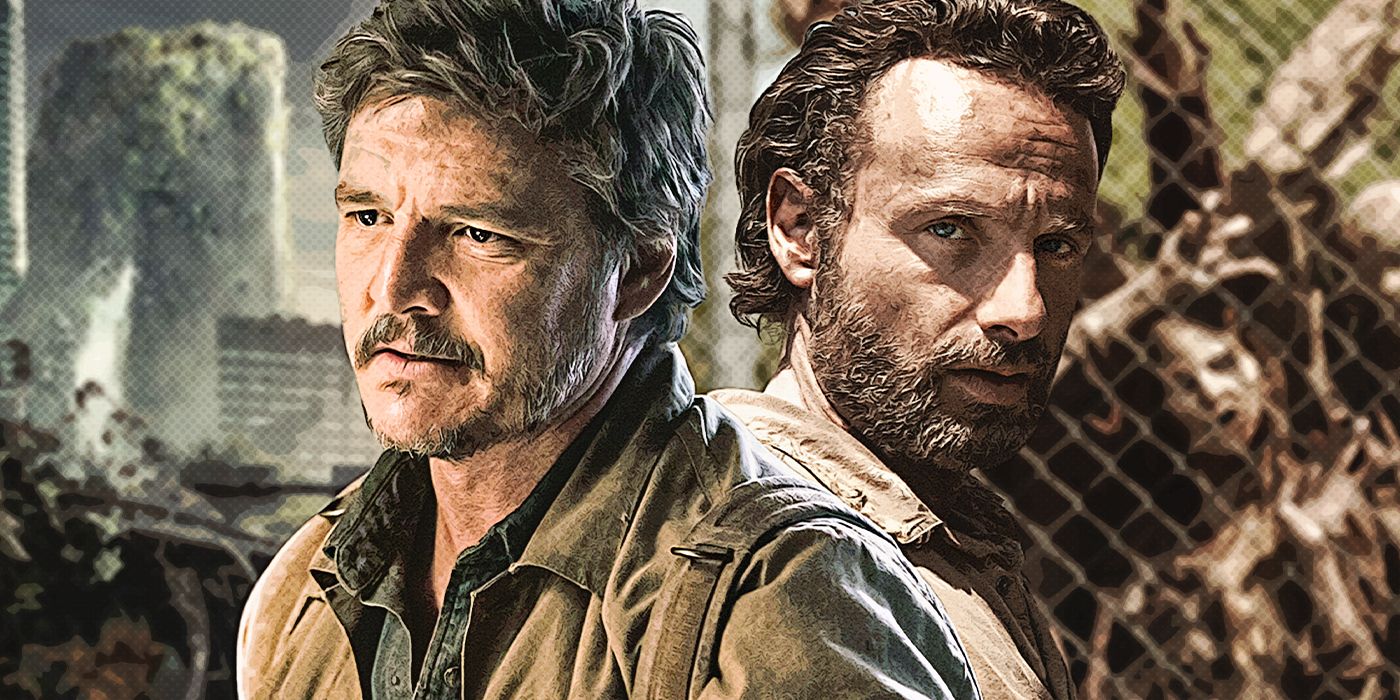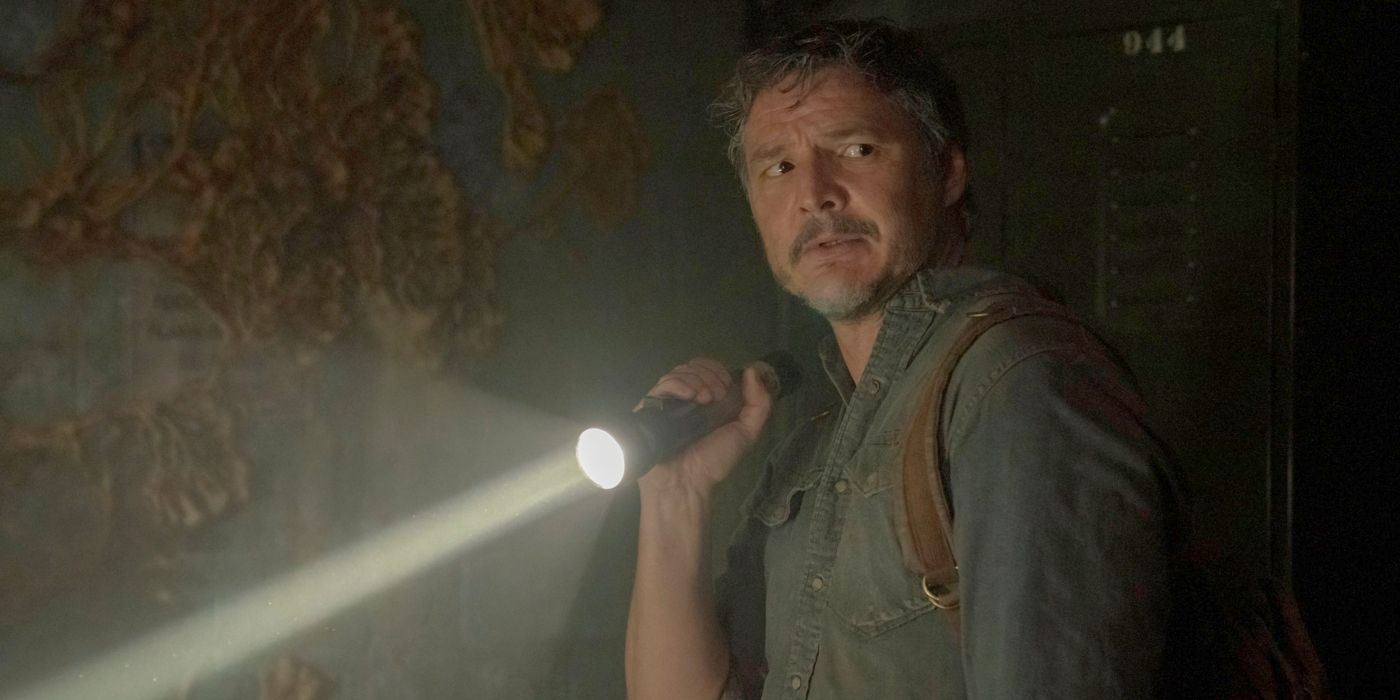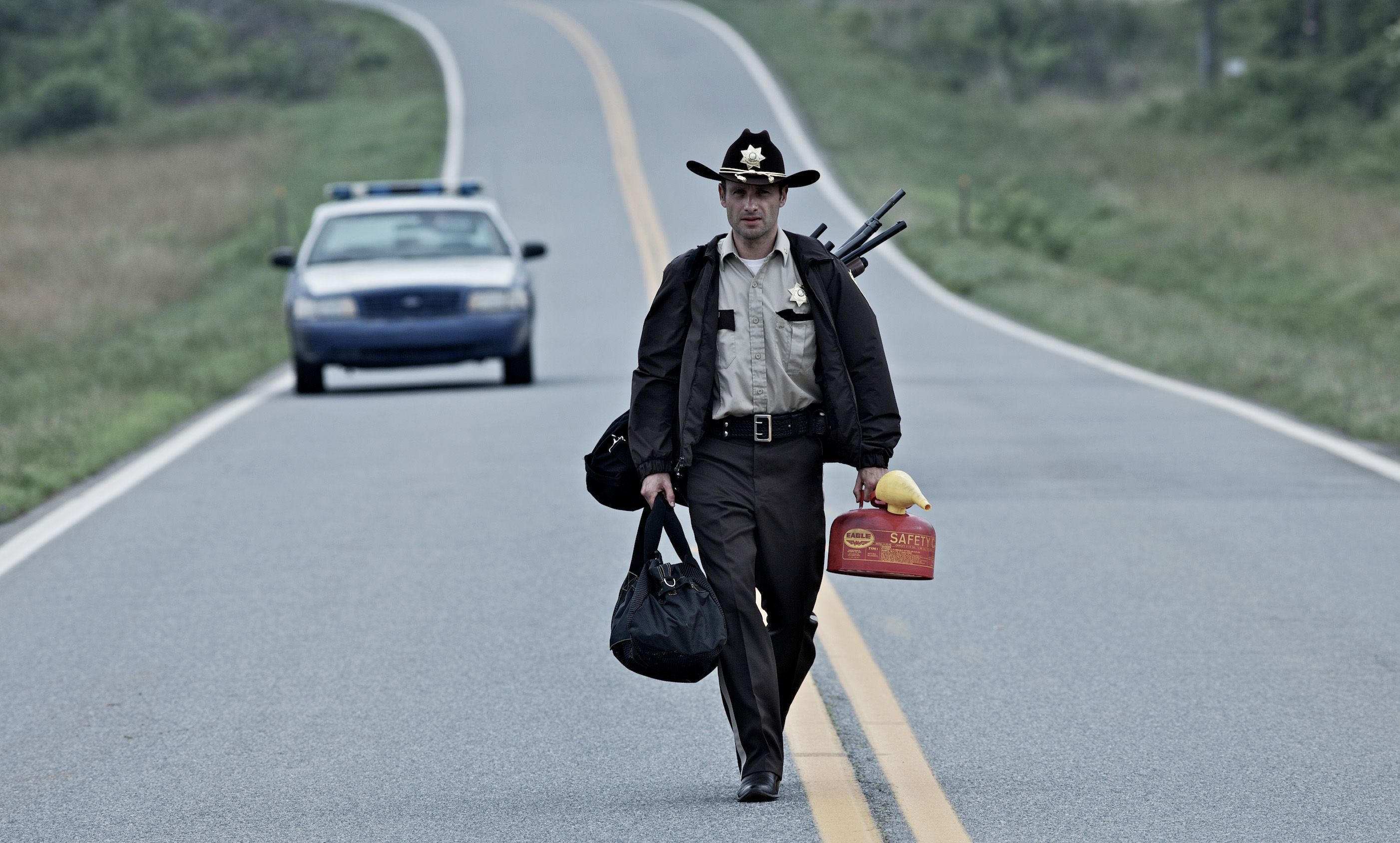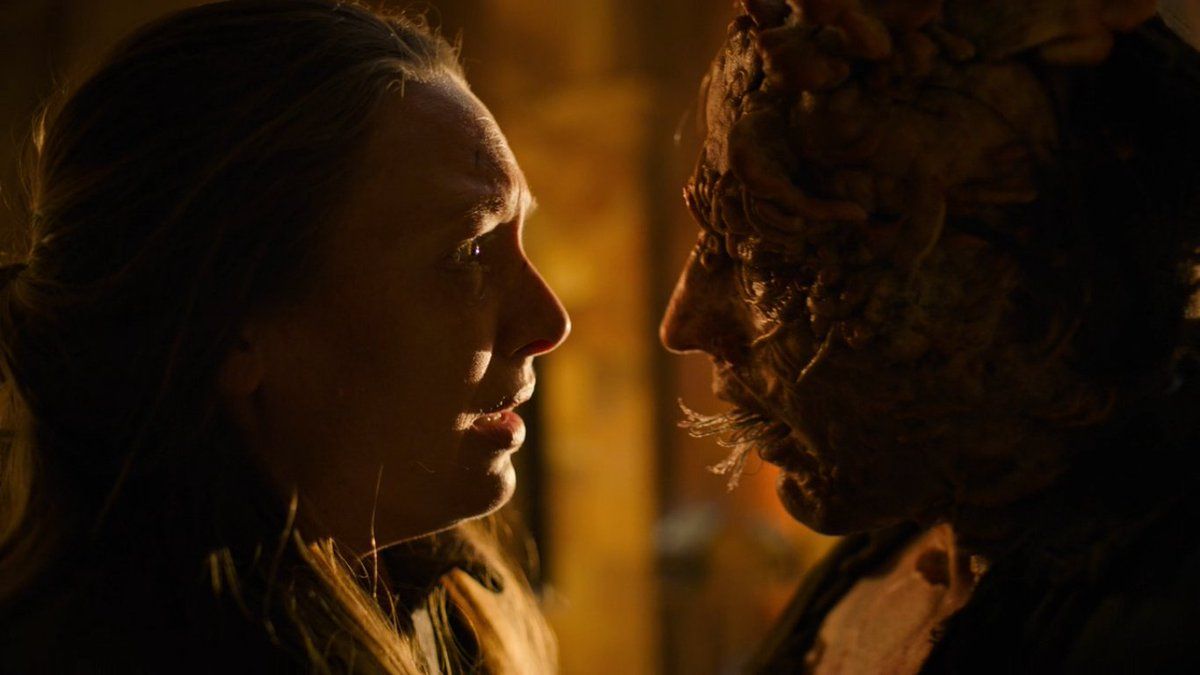The Walking Dead has been the dominant post-apocalyptic series on television since its AMC premiere on Halloween in 2010. Created by Robert Kirkman, the story follows Georgia Sheriff's Deputy, Rick Grimes (Andrew Lincoln), and takes on the world in the aftermath of a global zombie pandemic. Having origins as a series published by Image Comics in 2003, the show has since branched off into six spin-offs, each with its own perspective within the overall narrative. Its reception may have gone through waves, but its success is undeniable even as the main storyline came to an end with its 8th and final season in 2022. It's a legacy that may very well outlast the creator with very little coming along to challenge or compare to it.
Enter The Last of Us, a 2013 video game created by Neil Druckmann and developed by the crew at Naughty Dog. Its release came during one of the more successful seasons of The Walking Dead and gave us a story in line with the acclaimed series as it takes place in a similarly dystopian world that has been ravaged by a mutated fungal pandemic. The journey of Joel Miller (Pedro Pascal) and Ellie Williams (Bella Ramsey) was praised so highly that it was only a matter of time until it became a movie or television series. Jumping forward to January 15, 2023, The Last of Us has now transitioned to live-action as a highly praised series on HBO. With so many similarities occurring within both stories, it's difficult not to compare the two even in their original formats. Now that The Walking Dead and The Last of Us have found themselves on equal media, we can properly compare the two.
'The Last of Us' vs. 'The Walking Dead': The Origins
When it comes to the cause of The Walking Dead's undead, the path is a bit of a tricky walk. No outright source of the virus has been stated definitively. Kirkman has only ever lightly touched on the matter, saying it wasn't relatable or necessary to the story since the focus was less on a cure for the scourge and more on humanity pushing forward. The only answer that has been provided since is the after-credits of the Season 2 finale of The Walking Dead: World Beyond, which hinted at it being a viral creation from a biomedical lab in France.
The Last of Us, in comparison, has a much clearer path of origin for its monsters. Depending on the telling you follow, the HBO series has its beginnings at a flour factory in Indonesia with the Cordyceps fungus evolving in order to survive the effects of global warming. When referring to the video game, while it never states the "why" and "how" the fungus mutated, there are several artifacts players will find that track its history as a "mysterious infection" originating in South American crops and making its way through Central America, Mexico and assumedly across the world. Once it did, the Cordyceps fungus went form simply affecting insects to making humans their new hosts by way of global food vendors.
'The Last of Us' vs. 'The Walking Dead': How Has Humanity Adapted?
In both The Walking Dead and The Last of Us, the world is already in a dystopian state, that is either already divided or will soon be distinguished by factional rule. The post-infected world of The Last of Us has the United States government disbanded and replaced by the Federal Disaster Response Agency (FEDRA) who merged itself with the military and declared martial law while teaming with the Department of Defense and the Centers for Disease Control in an attempt to contain the fungal spread in the U.S. They created quarantine zones and came up with strict protocols as FEDRA took more of a hold on the United States. As a result of this, several other groups rose out of the ashes of civilization such as hunters, smugglers, and the Fireflies, a revolutionary militia organized as a response to FEDRA, who believe the new government was too extreme and want a better alternative.
When we join The Walking Dead's story, it's still in search of finding that "better world" by the time we enter.The narrative is, at first, unaware of how civilization has progressed as we follow its main character, Rick Grimes. Our awareness eventually expands from that of Rick's small crew to other bands such as the cannibals they encounter and settlements like the prison, the township of Woodbury and Alexandria. While few are quite as extreme as TLoU's FEDRA, the exception possibly being the Civic Republic Military once TWD:World Beyond expands on them, each operates with its own unique ways and laws whether it's through an unquestionable fist like Woodbury and The Saviors or similar to present-day government like Alexandria.
'The Last of Us' vs. 'The Walking Dead': What Are the Threats?
It can be agreed upon that zombies wanting nothing more than to feed and spread isn't anything new to fans of either TWD or TLoU. Knowing this, their creators put their respective spin on the dangers within their stories. In The Walking Dead, the threat is less from zombies and more from the savage state of humanity and how it's adapted. The world Rick has woken into is revealed to be more brutal as his gang has a confrontation from just about every new group they encounter. Proof of its intensity can be seen through Rick himself. Not only has he been scarred, but he's also suffered losses both personally and within his group. He infamously loses his hand, wife, child and several friends to The Governor as well as Abe and others during the war with The Saviors, the effects of which also leaves him with a permanent limp. This shows us that, while the zombies are an ever-present danger, they're more of an adaptable, environmental threat, and it's the living that are the true danger.
The Druckmann series, on the other hand, has Joel, Ellie and Abby each take on both the hosts of the Cordyceps Brain Infection and the living. This is even, at times, simultaneously such as in The Last of Us: Left Behind, when a horde of infected broke into the mall Ellie hid Joel in while searching for medical supplies and evading a group of hunters. Comparatively, the CBI mutant hosts are heaps more dangerous than TWD's zombies. They're not only stronger, faster and tougher to kill by creation — sometimes requiring more than a single headshot — but they just get harder the longer they exist within the host, literally. As the fungus blooms on the infected, it provides and armor-like shell on parts of the body and even creates its own weapons. In this way, it's undeniable that placing them not only within the environment, but also at an equal threat level as opposing survivors thrusts humanity into a more intense state than that of TWD.
'The Last of Us' vs. 'The Walking Dead': The Narrative Tones are Very Different
"Hope in spite of an ever-grim world" would best describe the tone of The Walking Dead. In the comic series, hope's avatar was Rick Grimes. Despite every obstacle placed before him, he maintains a positive outlook for humanity, believing it can return to being civilized. This is translated to both the show and the comics, and he's shown to do this almost comically. Whether it's Savior Rick, standing before his group and a backdrop of stained-glass or the various splash pages of the comics depicting Rick steadfastly hopeful in an otherwise bleak world. He maintains face while motivating and leading his group who, in turn, support him in making this hope a reality. This may not have panned out on television just yet, but it came to be in the comics. It also brought Rick's demise. However, after helping to establish a cooperative network of colonies as well as defending and overseeing the Alexandria Safe-Zone, a statue is built in his honor as if poetically cementing him as his world's hope.
If one were to paraphrase The Last of Us similarly, it would simply be "Endure and survive," the slogan of its in-game comic series Savage Starlight. TLoU is a tale born of tragedy whose narrative seems to wholly embrace its own dreadful tone. If one were to dare to compare the two, the stories and its two main characters are nearly each other's polar opposite. Whereas Rick is TWD's personification of hope whose personal choices cater to the greater good, Joel removes his world's hope by saving Ellie and killing those working on a way to stop the fungus. This one choice he makes while acting out in the long-standing grief of losing his daughter ensures that humanity remains in this terrible world.
As the spin-offs of The Walking Dead progress, the commonalities between it and The Last of Us become more prominent, especially considering the direction of TWD: World Beyond and how closely they resemble FEDRA. As Druckmann's HBO series has only just premiered and still has a good amount of ground of its original story arc to cover, we'll just have to enjoy the two as they are and see how it all plays out.
The Last of Us premieres new episodes every Sunday at 9 p.m. on HBO and HBO Max.





